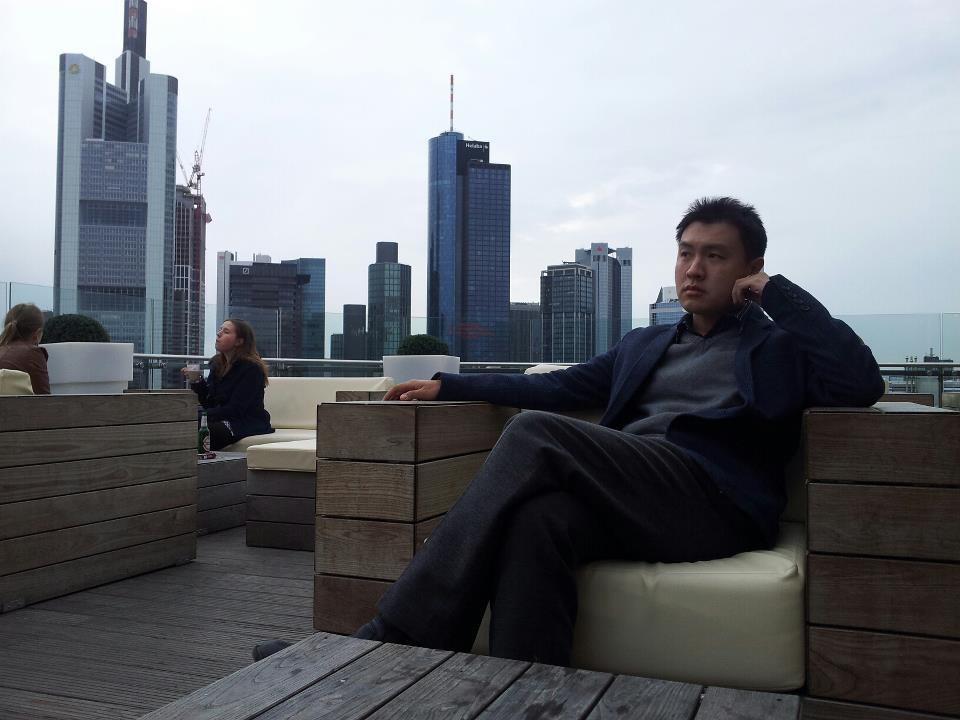A Non-European Europhile
For my two case studies on the genesis of the 2-degree EU climate target and the negotiation of the excessive deficit criteria in the Maastricht Treaty, I interviewed many experts and visited several EU institutions and archives.
The research brought me to Frankfurt, Copenhagen, and of course, Brussels. The European Central Bank in Frankfurt was my first stop. The city of ‘Mainhattan’ has its special charm and a symbolic meaning to both Europe and me. In 2006, when I visited Europe for the first time as a typical Asian tourist, Frankfurt was also my first stop.

I inevitably took a selfie in front of the giant Euro sign on Willy Brandt Square, and was deeply intrigued by the concept of the monetary union. 6 years later I started my fieldwork here, happily sharing my personal feeling about Frankfurt and the Euro with my interviewees. In return, they candidly shared their own passions and worries about the single currency.
The case study on climate change also directed me to the European Environment Agency. Copenhagen is undoubtedly a green and beautiful city in sunny summer days. The ‘archives’ of the Agency, however, were not very well organized, reflecting the limited resources for environmental policy. I spent two weeks trying to make sense of the historical documents I found and to interview as many experts as possible. Although some climate scientists were sceptical about my qualitative approach, they were generally very approachable and helpful, especially after I shared my thoughts about EU climate action.
There is a fine line between explaining my research and leading my interviewees. On the one hand I want to build trust with these experts, to show them that I ‘know something’ so that they are willing to say more; on the other hand, I need to remain neutral and allow them to spell out their real thoughts. My ‘non-European’ identity made this nuanced manoeuvre relatively easier, particularly when I was in Brussels. To my surprise, people are genuinely interested to know why I am passionate about my research. I can therefore play the ‘naïve’ Europhile card without being challenged too much, and ask my interviews to ‘educate’ me with their own complex and critical take on the European project. I can also share my own opinions as an ‘outsider’ without discouraging them to provide more insights. The ‘non-European Europhile’ tag has become my primary identity in the field, and my secret weapon to survive in the Brussels bubble.